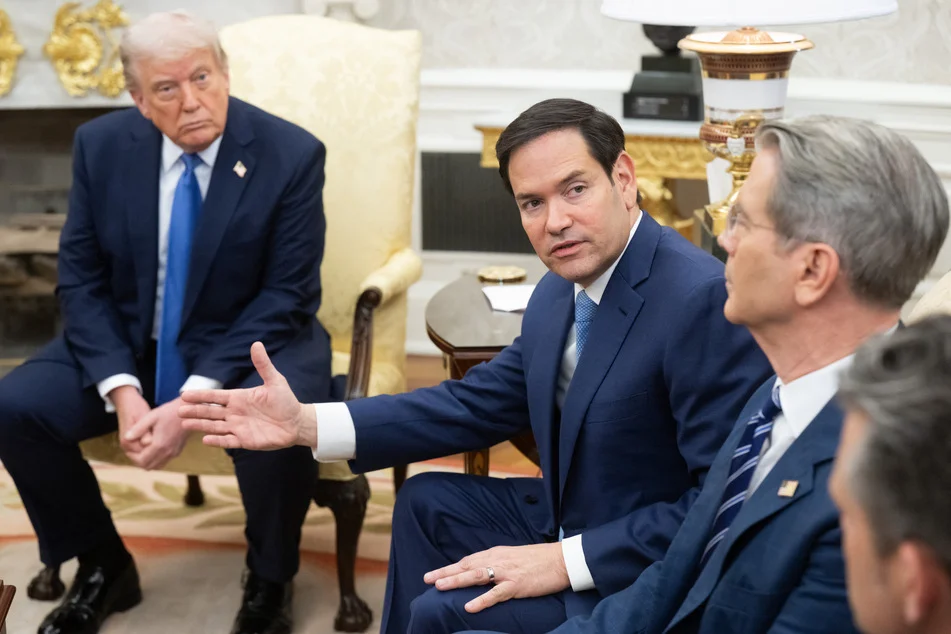April 26, 2025 — A Sustainable Action Now Report
In a stunning move that has sparked widespread concern among environmental advocates, scientists, and international diplomats, Senator Marco Rubio has ordered the dismantling of the Office of Global Change (OGC)—a little-known yet pivotal arm of the U.S. State Department responsible for overseeing and coordinating American participation in international climate negotiations. The notification, issued quietly this past Thursday, signals a dramatic shift in U.S. climate diplomacy and raises significant questions about America’s role on the global stage in addressing the climate crisis.
This decision, made with little public warning or congressional debate, has effectively shut down the operational heart of U.S. climate negotiations, a move Sustainable Action Now views as deeply troubling and regressive at a time when cohesive, science-driven international cooperation is more crucial than ever.
🔍 What Was the Office of Global Change?
Established during the early 1990s, the Office of Global Change served as the central node within the U.S. Department of State for coordinating the government’s international climate policy and negotiations. It was a critical player in the formulation and communication of U.S. commitments under the United Nations Framework Convention on Climate Change (UNFCCC), the Paris Agreement, and the newly emerging cooperative mechanisms under Article 6 of the same accord.
Staffed by policy experts, legal advisers, environmental scientists, and experienced negotiators, the OGC acted as the voice of the United States in high-stakes global climate talks. It coordinated with other federal agencies, international partners, and non-governmental organizations to ensure that America’s climate diplomacy reflected both national interests and global climate obligations.
Now, with the office officially shuttered, that voice has gone silent.
🌍 A Blow to Global Climate Cooperation
The decision comes at a time of growing urgency. The world is witnessing escalating climate extremes—from historic droughts and floods to record-breaking heatwaves and melting ice caps. As nations scramble to finalize frameworks under Article 6, which would enable international emissions trading and cross-border climate finance, U.S. leadership is notably absent—and this latest decision only widens that leadership vacuum.
Environmental policy experts warn that the absence of U.S. negotiators will destabilize multilateral efforts to operationalize carbon markets and emissions reduction frameworks. Countries in the Asia-Pacific region, many of which are banking on Article 6-led financing to accelerate their transitions to low-carbon economies, are now facing renewed uncertainty.
“This move is more than just bureaucratic reshuffling,” said Dr. Helena Rowe, a former senior advisor at the OGC. “It represents an abandonment of the moral, economic, and scientific leadership the U.S. once had in global climate efforts.”
🇺🇸 Domestic Politics, Global Consequences
The closure of the OGC is part of a broader trend of climate skepticism and rollback of environmental policy that has reemerged in recent years among certain factions of the U.S. political establishment. Senator Rubio’s move aligns with an increasingly isolationist and deregulation-heavy agenda, one that casts climate change as a peripheral issue rather than a national and planetary emergency.
Yet the consequences of such political decisions are not contained within U.S. borders.
According to Sustainable Action Now, the ripple effect of dismantling the OGC will likely:
- Undermine U.S. credibility in future climate negotiations, including upcoming COP summits.
- Stall international collaboration on Article 6 implementation, delaying access to much-needed climate finance in vulnerable regions.
- Disrupt existing bilateral agreements with developing nations that rely on U.S. expertise and resources for carbon accounting, adaptation planning, and technology transfer.
- Weaken coordination between American businesses engaged in international emissions markets and their global counterparts.
🔬 The Silencing of Science
This decision also represents a dangerous erosion of climate science within federal policy-making. The OGC wasn’t just a diplomatic office—it was a conduit for evidence-based decision-making at the international level. It worked closely with U.S. scientific agencies like NOAA and NASA, translating complex environmental data into actionable climate policy.
As noted by climate scientist Dr. Ben Horton, who recently relocated to Hong Kong to support Asia-Pacific collaboration, data and scientific insight from U.S. agencies remain vital for global adaptation and mitigation planning.
“Global politics may shift,” Horton said recently, “but the principles of nature do not. Shutting down scientific diplomacy doesn’t stop sea levels from rising or glaciers from melting—it just blinds us to the truth.”
🌱 Our Call to Action
Sustainable Action Now stands in firm opposition to the dismantling of the Office of Global Change. We believe this move:
- Is a step backward in the fight against climate change.
- Reflects a disregard for international cooperation.
- Undermines decades of progress made under both Republican and Democratic administrations.
- Sends the wrong message to American youth, the scientific community, and our global allies.
We urge citizens, lawmakers, environmental organizations, and members of the international community to demand accountability and advocate for the reinstatement or replacement of the OGC with an even more robust, inclusive, and science-driven office.
📢 What You Can Do:
- Contact your representatives and voice your concern.
- Support organizations engaged in international climate diplomacy and science advocacy.
- Raise awareness on social platforms about the importance of U.S. involvement in global climate talks.
- Donate to local and global environmental efforts, especially those supporting vulnerable communities impacted by climate change.
This is a moment not for retreat, but for renewed commitment. We at Sustainable Action Now believe that while institutions can be dismantled, the spirit of global climate solidarity cannot be silenced. It lives on in each of us who refuses to accept inaction in the face of a crisis.
Because climate action isn’t optional. It’s essential.


